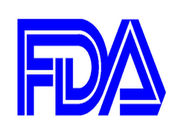First oral medication approved for chronic use in moderate-to-severe active ulcerative colitis
WEDNESDAY, May 30, 2018 (HealthDay News) — U.S. Food and Drug Administration approval of Xeljanz (tofacitinib) has been expanded to include adults with active moderate-to-severe ulcerative colitis, the agency said Wednesday.
Xeljanz was first approved in 2012 for rheumatoid arthritis, and in 2017 for psoriatic arthritis. The safety and efficacy of Xeljanz for the treatment of moderate-to-severe active ulcerative colitis were demonstrated in three controlled clinical trials. Patients taking 5 or 10 mg of Xeljanz were found to experience greater and longer disease remission than patients taking placebo. Xeljanz is the first oral medication approved for chronic use in moderate-to-severe active ulcerative colitis. Other medications approved for the chronic treatment of this indication need to be administered through intravenous infusion or subcutaneous injection.
The most common side effects with Xeljanz were diarrhea, high cholesterol, headache, herpes zoster infection, cold-like symptoms, rash, and upper respiratory infection. The drug’s label includes the agency’s most serious “boxed warning” of less common adverse reactions, including serious infections and cancer, the FDA said. The agency warned against using Xeljanz in tandem with biological therapies for ulcerative colitis, or with potent immunosuppressants.
“New treatments are needed for patients with moderately to severely active ulcerative colitis,” Julie Beitz, M.D., director of the Office of Drug Evaluation III in FDA’s Center for Drug Evaluation and Research, said in a statement. “Today’s approval provides an alternative therapy for a debilitating disease with limited treatment options.”
Xeljanz is produced by New York City-based Pfizer.
Health News Copyright © 2018 HealthDay. All rights reserved.








